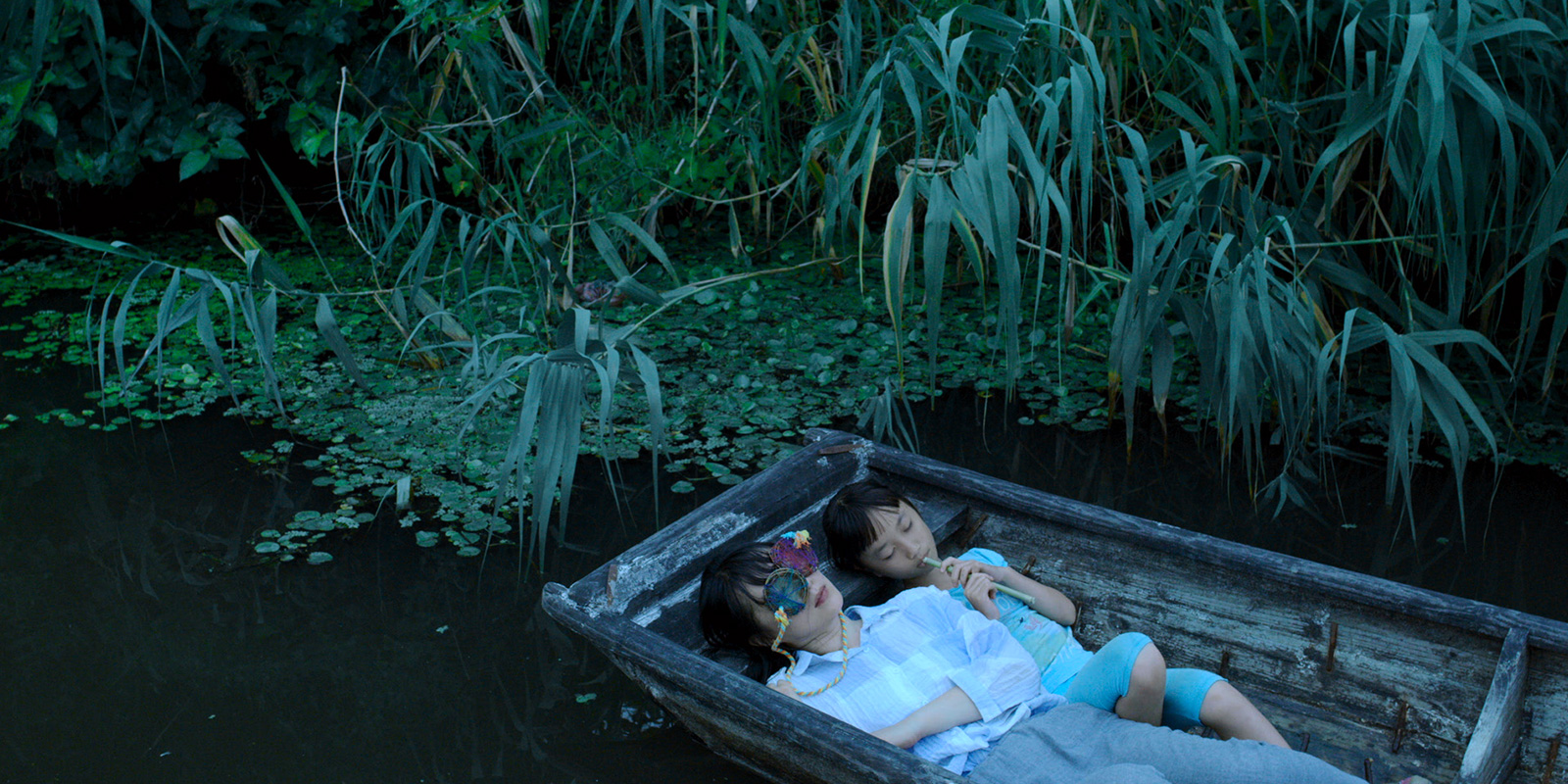Yang Yishu’s Lush Reeds is about a journalist, Xiayin, concerned with social stories in an inhospitable journalistic climate. Motivated by repeat encounters with Gao, a refugee farmer, she visits the countryside to report on suspect waste practices. This synopses suggests that Lush Reeds is an investigative thriller, an expose of corporate misdeeds in the countryside, far from the eyes of regional authorities. But these are broad strokes, and ultimately misleading.
Yang Yishu, a professor of filmmaking and dramatic arts, infuses her film with intellectual overtures —offhand remarks about the transformation of Chinese tradition, and the displacement and redevelopment induced by flows of capital. But Lush Reeds is an ambiguous and elliptical story, more about alienation, more about Xiayin and her meanderings through a ghost-city perpetually under construction, and a return to nature suffused with menace and mystery.
The unnamed city Xiayin inhabits seems growing but stillborn, and is cast in a filter of depressive blue. The audience enters Lush Reeds through screens of blue: a flash-forward to a twilight journey through the bush near the film’s conclusion, workers on an unfinished bridge that stretches across the Yangtze into a haze, a shoe by the side of a river. The shoe is an artefact of suicide, one of the hazy details that constitute a series of meanderings and subtle aggressions.
We do understand that Xiayin has come across the scene, and that the shoe belonged to one of her colleagues. This death weighs heavily on Xiayan, though her response is subdued, and much of the film consists of her passive emotional conflicts. Yishu makes canny choices, often shooting Xiayin outside herself with the camera encountering her by surprise in a hallway, or placing her outside of the frame, only visible in a window’s reflection.
References to feminist labour, right to the city, and the rural/urban divide position Lush Reeds as a political film. But Yishu is most committed to the existential and phenomenal, as the film’s surreal turn in its second-half makes clear. Lush Reeds’ first half can be oppressive, but Yishu demonstrates throughout her sharp mind for images the vivid internal life of its protagonist.
Lush Reeds is not a hopeful film with answers to the questions it poses. Its title (suggesting growth and rejuvenation) is suffused with irony. It situates Xiayin in a landscape of patriarchal revanchism, environmental destruction and global capitalism. It challenges the intellectuals who theorize freedom while they remain insensitive to the struggle around them. It is a clear-eyed portrayal of internal ambiguity, where alienation follows the urbanite to a compromised pastoral. Lush Reeds does provide a yearning desire for sense in an insensate world, and at its highest points the film captures that moral act of searching, even as it contends with a bitter realism.


